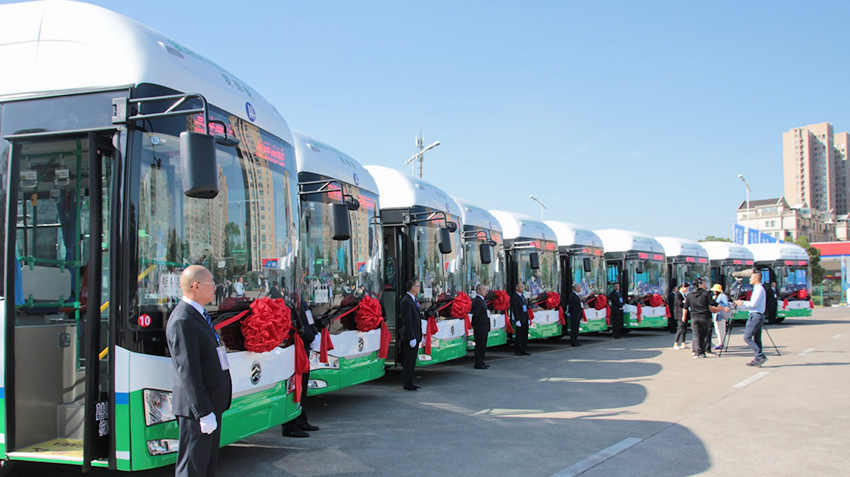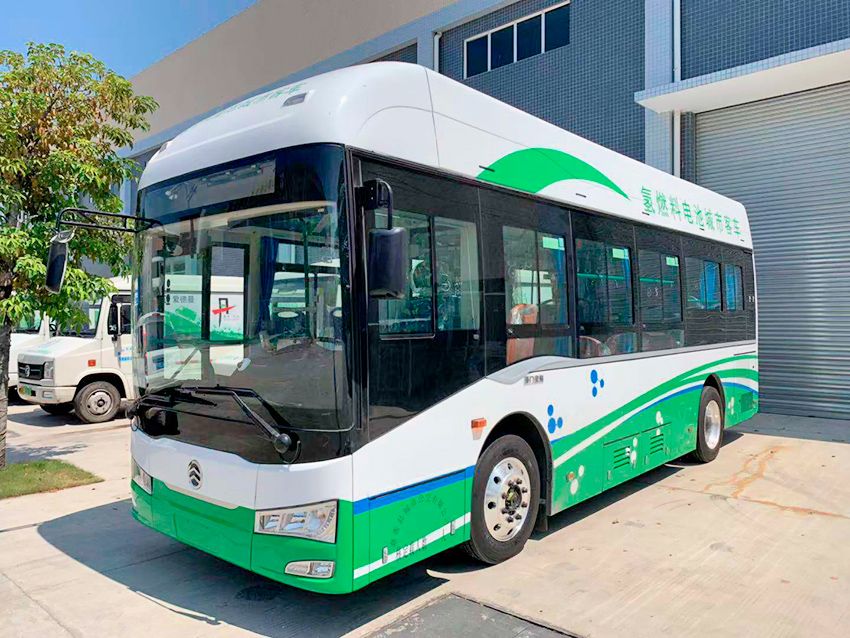Chinese Foshan city the lead on purchases of electric buses with hydrogen fuel cells

10.01.2020
Nanhai district Polanski China received another batch of 186 hydrogen-powered buses

According to the website of China Association of automobile manufacturers (CAAM) recently, the Chinese bus manufacturer Xiamen Jinlong Wagon Co., Ltd. (hereinafter referred to as the "Golden team"), based in Jiashan County of Zhejiang province, won the tender for delivery of 186 buses Stream series Series Hydrogen City Bus (length 8.5 m – ed.) hydrogen fuel cells (FCBUS – ed.) for Nanhai district of Foshan city in Guangdong province (photo on the splash screen).
According to the "Plan for the development of the hydrogen industry Foshan Nanhai on 2019-2030 gg. (Consultation draft)" issued by Foshan Nonchicken area in early October, 2019, 2020, Nanaiski the district plans to have 400 cars on hydrogen fuel elements. By 2025, the number of FCBUS-s should reach 800 units, and by 2030 their fleet will reach 1.5 thousand currently in the Nanhai district of Foshan city, is already deistvuyut 4 refuelling stations hydrogen (emkah joint venture with the French company hydrogen Air Liquide – ed.) and another 8 under construction. In operation 440 units FCEV hydrogen fuel cells, including 11 buses on hydrogen fuel, 3 426 van and commercial vehicle.
In recent years, with the development of technologies for hydrogen energy technologies have substantially advanced in the direction of its industrialization: the government and private industrial capital actively contribute to the development of hydrogen energy. Vehicles with hydrogen fuel cells (FCEV) differ from battery electric vehicles (BEV) such advantages as high mileage and small gas (hydrogenation), and conventional vehicles with internal combustion engines (ICE) also with no harmful emissions. So they have become an important strategic direction of China's development. In October of this year was put into operation the first batch of urban FCBUS length of 8.5 meters in Jiashan County of Zhejiang province, which was formally launched the first hydrogen bus line.
The company "Golden team" was able to win a tender to supply buses and FCBUS in Foshan, which was the result of years of intensive development of such passenger cars.

The city of 8.5-metre midibus Xiamen Jinlong hydrogen fuel cells (in the background, Allen van fuel cell)
In the development of buses on hydrogen fuel cells the "gold brigade" started its activities very early – in 2010, she created a special group for technical research and development, and in 2016, released the first electric bus with hydrogen fuel cells the first generation. Technological breakthroughs in the field of hydrogen fuel cells over the past decade has allowed the "Golden brigade" become the owner of innovative know-how (confirmed by the national patent office) in the field of research and development FCEV and all related issues, including basic control technology electric power plants on fuel elements and optimization of electric hybrid systems using fuel cells taking into account the real operating conditions. In addition, there was created the laboratory working on hydrogen fuel elements, and also the test bench for the propulsion system 100 kW power with full validation and evaluation of such a system.Currently, the "gold brigade" offers a wide range of vehicles with hydrogen fuel cells, including 8-, 10 - and 12-meter FCBUS. Among them the most fame, debuted in September 2017 8-foot model of the Golden Travel, which has successfully passed tests in Xiamen and Shanghai AutoCity,as well as many other areas which showed good results. A new generation of electric buses on hydrogen fuel cell flow type, being completely environmentally friendly, has a lot of advantages over battery electric bus (EBUS), such as fast charging rate (hydrogenation) and a large reserve. One-time refueling with hydrogen takes only about 10 minutes, and power reserve on it more than 500 kilometers..
|
|
|








